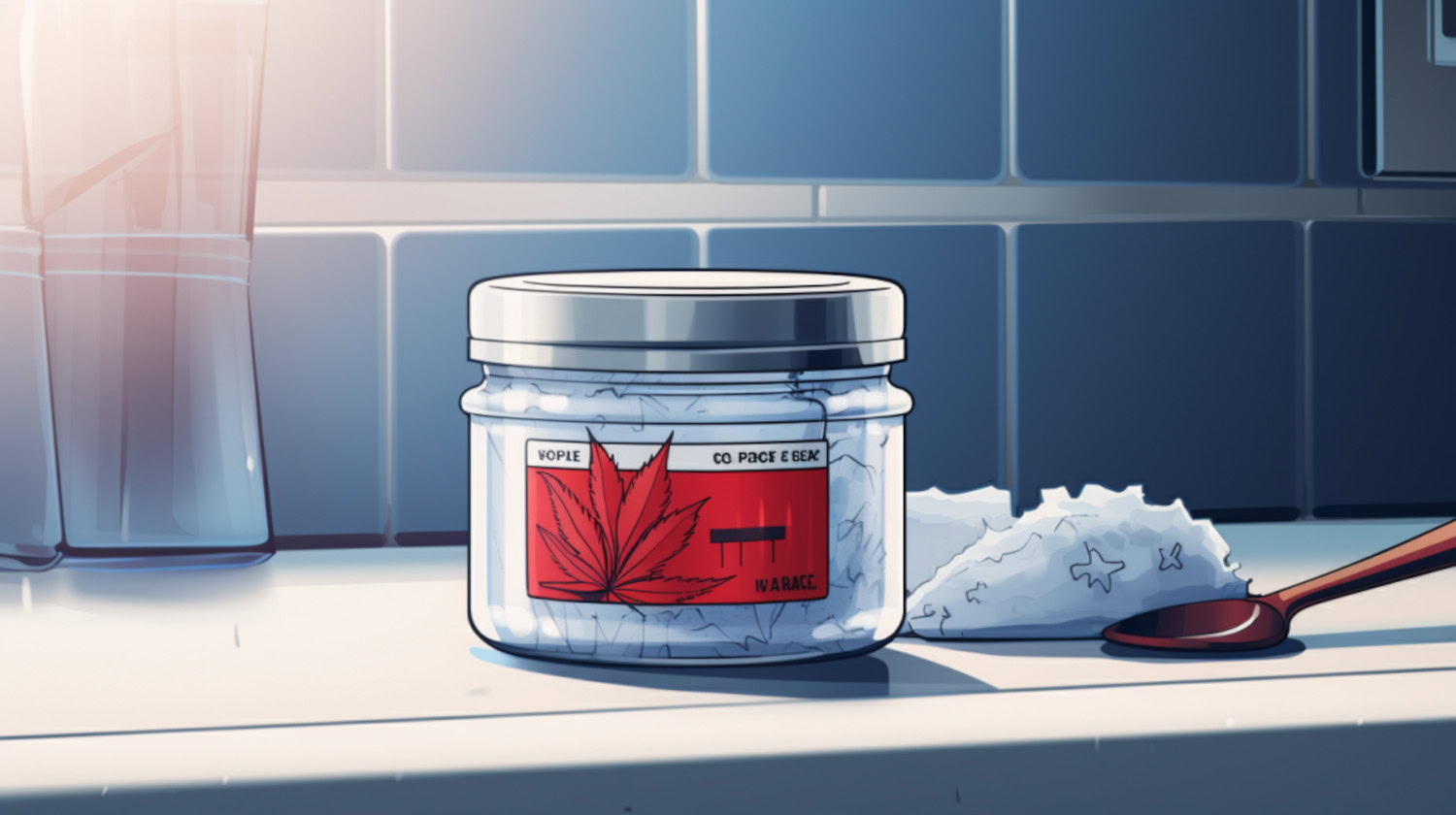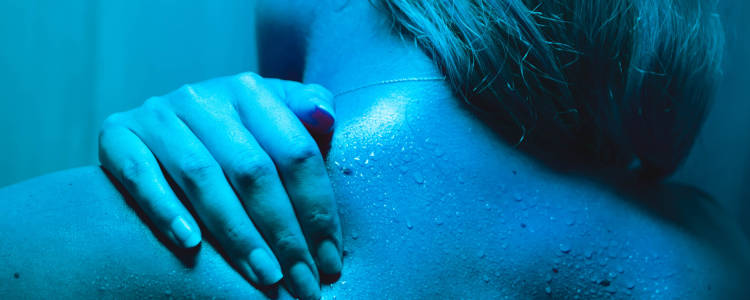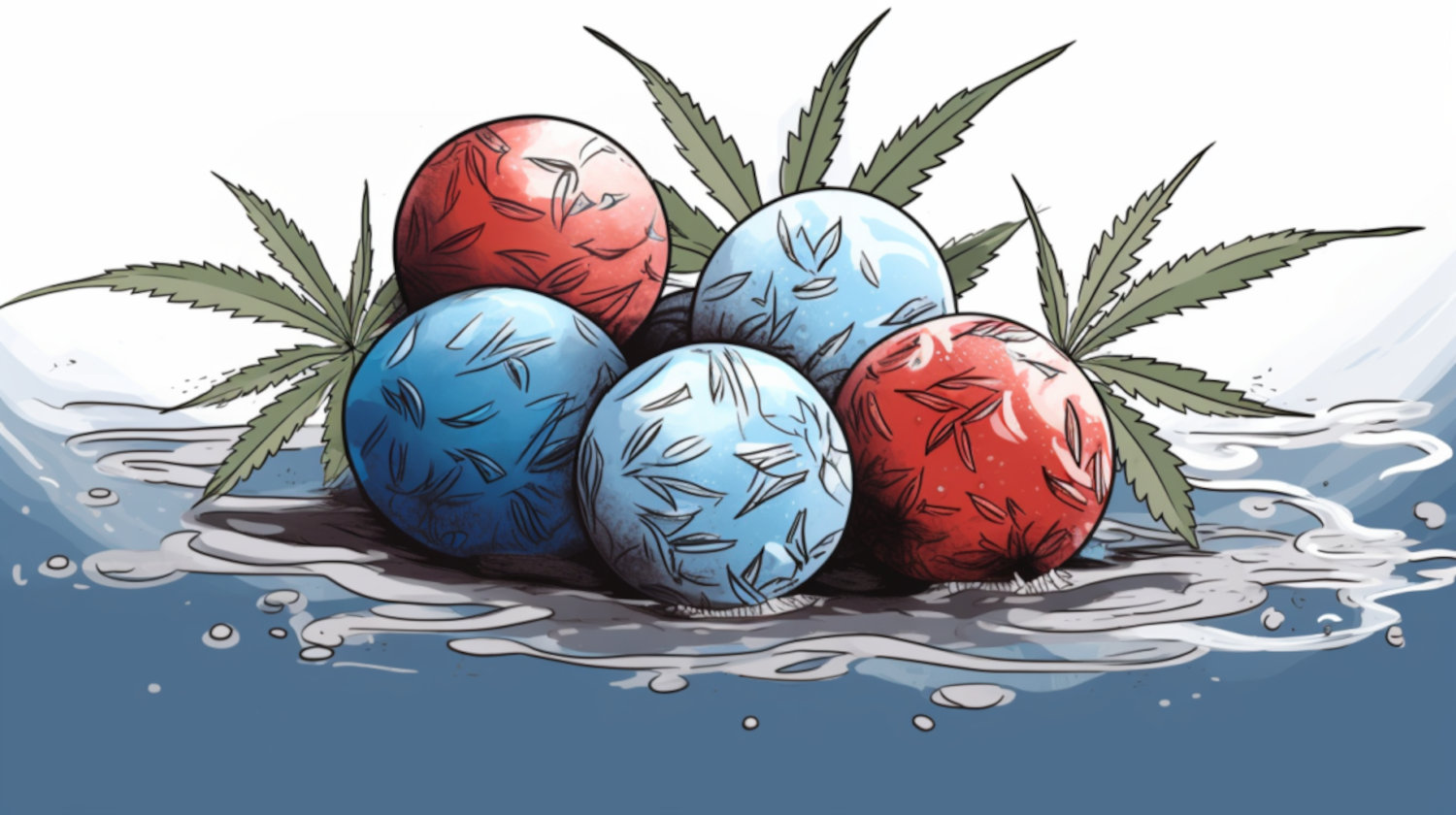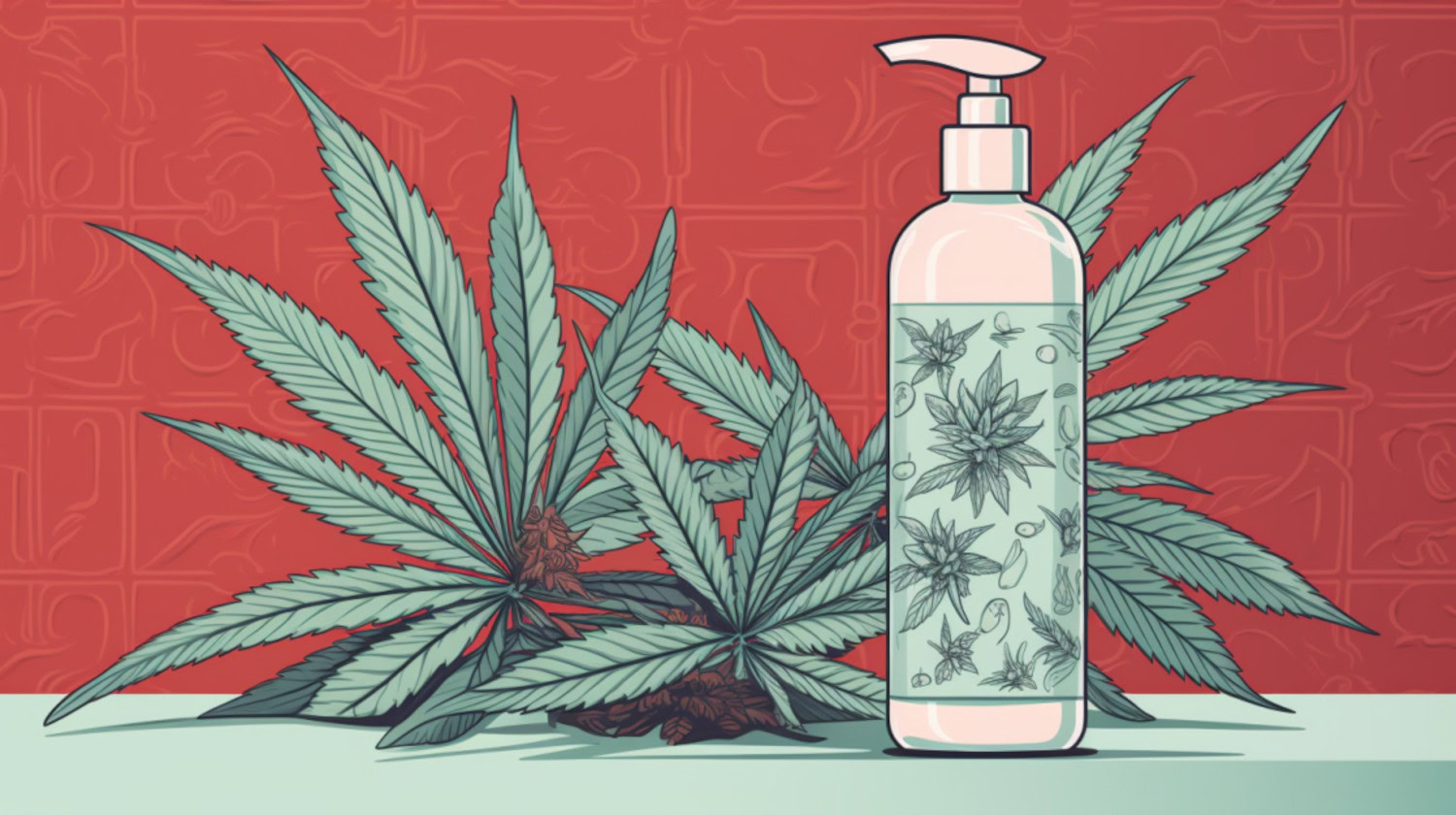In This Article
- What are CBD Bath Salts?
- Full-spectrum CBD Bath Salts
- Broad-spectrum CBD Bath Salts
- CBD Isolate Bath Salts
- Advantages of CBD Bath Salts
- Pain Relief
- Skin Health
- Antioxidant Properties
- Drawbacks of CBD Bath Salts
- Mobility Concerns
- Minor Time Commitment
- Cost
- Potential for Skin Irritation
- Absorption
- Legality and Regulation
- How to Use CBD Bath Salts
- 1. Fill the Tub with Hot Water
- 2. Add CBD Salts
- 3. Enjoy Your CBD-infused Soak in the Tub
- 4. Post-Care
- Tips for Buying CBD Bath Salts
- CBD Concentration
- Additional Ingredients
- Scent and Aroma
- Brand Reputation and Quality
- Certificate of Analysis (COA)
- References
Key Takeaways
- CBD bath salts are like traditional bath salts but contain full-spectrum, broad-spectrum, or CBD isolate.
- CBD bath salts may help relieve pain and improve skin health.
- To use CBD bath salts: fill the tub > add the salts > enjoy your soak > dry off with a soft towel.
CBD is a booming market brimming with innovative products, many of which may enhance relaxation. By combining CBD with bath salts, consumers may experience immense relaxation benefits. What goes into these CBD bath salts, though? How are they made, and what can they do for the average consumer?
What are CBD Bath Salts?
CBD bath salts are an innovative twist on a classic wellness product. They provide consumers with traditional relaxation properties and elevate the experience with the infusion of cannabis compounds. Like CBD, bath salts are regarded for their potential to relieve physical pain and mental stress.
Bath salts activate when dropped into warm water, typically in a bathtub. Once saturated, the salts release their compounds, including essential oils and infused cannabinoids. The bather may experience localized relief without any risk of experiencing a high associated with THC.
CBD is formulated in various ways, creating three types of products.
Full-spectrum CBD Bath Salts
This type of CBD product contains as much of the complete plant profile as possible. In addition to CBD, a full-spectrum product contains traces of THC. It may also contain minor cannabinoids, terpenes, flavonoids, and other plant compounds. Full-spectrum is the preferred option for the entourage effect, a widely supported theory that consumers receive the most beneficial effects from the plant when its compounds are consumed together.
Broad-spectrum CBD Bath Salts
Similar primarily to full-spectrum products, the critical difference is the lack of THC in the final formulation. Anyone looking for the whole plant profile minus the THC may find broad-spectrum items ideal. However, THC should not be much of a concern in topicals like bath salts. There is little to no chance of cannabinoids reaching the bloodstream via topical application.
CBD Isolate Bath Salts
Isolate products contain just one compound, often delivering a potency of 99%. Cannabis plants are refined and extracted through various methods until a singular compound remains in a white powder form. CBD and THC isolates are both popular among consumers seeking a “pure” consumption experience free of any other plant compounds. Many licensed producers also use isolate in products like edibles to remove any cannabis taste from their products, among other reasons.
Bath salts can be made commercially or as a DIY project at home. Typical formulations include a mixture of coarse sea salt, Epsom salt, and baking soda. Additional compounds, including CBD, lavender, citrus, and other essential oils, can be added to the mixture to increase the therapeutic potential and aroma of the product.
THC bath salts are also available in stores and can be made at home. However, due to the complex legal nature of THC on state and federal levels, its availability and legality may not be as accessible as CBD products.
Advantages of CBD Bath Salts

The healing potential of bath salts and CBD creates a list of possible advantages for consumers.
Pain Relief
Several studies recognize topical CBD's potential analgesic or ‘pain-relieving’ properties. A CBD-infused bath salt may help reduce body pains, including certain types of foot pain.1 It may also help with muscle soreness, providing topical relief without any cannabinoid content reaching the bloodstream.
Skin Health
CBD is a fixture in many wellness brands, providing various preventive and restorative skin benefits. Potential benefits of CBD include anti-inflammatory relief and antioxidant properties. Additional studies highlight CBD's effectiveness in treating skin symptoms and conditions such as excessive itching, eczema, psoriasis, acne, and more.2
Antioxidant Properties
CBD may also have various antioxidant effects. It may help protect the skin from environmental and oxidative stresses and UV radiation, all of which promote healthier skin.3
Drawbacks of CBD Bath Salts
CBD-infused bath salts offer several potential benefits. Still, consumers should be aware of some possible drawbacks before proceeding.
Mobility Concerns
Those with limited mobility due to age or various medical conditions may struggle with getting in and out of a bathtub. While bath salts and a warm bath should promote mobility, this is only the case for some. The struggle may increase more when exiting the bathtub from a seated position.
Minor Time Commitment
Topicals can take effect in just a few minutes, but most infused bath salts suggest that effects are felt after 15 to 30 minutes. While not a huge commitment, those short on time or patience may find themselves needing an option with a quicker effect.
Cost
CBD and wellness products are often sold at a premium. Combine them, and the price may increase even more. Expenses can be offset by making infused bath salts at home. However, the cost and time associated with this route are also not always feasible for consumers.
Potential for Skin Irritation
While often beneficial to consumers, CBD and other ingredients used in bath salts may cause skin irritation in some consumers. Anyone sensitive to CBD, Epsom salt, essential oils, dyes, or preservatives should proceed with caution. Consider speaking with a trusted medical professional, ideally a dermatologist, to determine if a bath salt may aggravate existing conditions.
Absorption
How much CBD the skin absorbs during a bath can vary on several factors, including skin permeability and CBD concentration in the bath salts and the surrounding water. With uncertainty around its absorption, consumers may opt for a lotion or balm for a more certain topical absorption.
Legality and Regulation
CBD sales and production were legalized through the 2018 Farm Bill. However, some states have laws on the availability of certain CBD products and regulations on making them at home. Be sure to check any state and local regulations to ensure you are complying with the law.
How to Use CBD Bath Salts

Infusing your next bath with CBD bath salts is a straightforward process.
1. Fill the Tub with Hot Water
Aim for a warm, soothing temperature that puts you at ease and releases the compounds in the salts. Typically somewhere between 98°F and 102°F will do the trick.
2. Add CBD Salts
Drop the recommended dose of salts into the hot water. The directions for use should list this amount on the CBD bath salt label.
3. Enjoy Your CBD-infused Soak in the Tub
Sit down and get comfortable, allowing yourself at least 30 minutes to potentially experience the full effects.
4. Post-Care
After safely exiting the tub, wrap yourself in a cozy towel, robe, or something similar. Dry off a bit, then apply topicals or other post-bath essentials. Consider using a CBD-infused lotion, cream, or balm for additional topical effects.
Tips for Buying CBD Bath Salts
When buying CBD bath salts from a dispensary or online retailer, look for the following to ensure you're buying an effective product that's ideal for you.4
CBD Concentration
Dosage varies by product. Check the package to verify the total cannabinoid concentration and the dosage per recommended serving.
Additional Ingredients
Confirm that the bath salts contain ingredients that align with your needs and preferences. Consumers may want to avoid options containing artificial ingredients or unnecessary additives that irritate the skin.
Scent and Aroma
Some bath salts may contain scents and aromas, often produced by the essential oils included. Be sure to purchase a bath salt with an aroma that induces relaxation.
Brand Reputation and Quality
Buy from brands with stellar reputations. Confirm they’re in good standing by reading consumer reviews and evaluating their compliance history. The latter may be a bit more labor intensive, but doing so will help reduce concerns about uncertain products.
Certificate of Analysis (COA)
A certificate of analysis helps confirm the product’s formulation and dosage. It ensures that it contains safe input material and ingredients and states the amount of CBD and other compounds. You can find a certificate of authenticity on the company’s website or its packaging via a QR code.
References
- Hall N, James B, Bhuiyan MAN, Crane E, Falgout C, Murnane KS. Topical cannabidiol is well tolerated in individuals with a history of elite physical performance and chronic lower extremity pain. J Cannabis Res. 2023;5(1):11. Published 2023 Mar 30. doi:10.1186/s42238-023-00179-8 ↩︎
- Filipiuc S-I, Neagu A-N, Uritu CM, Tamba B-I, Filipiuc L-E, Tudorancea IM, Boca AN, Hâncu MF, Porumb V, Bild W. The Skin and Natural Cannabinoids–Topical and Transdermal Applications. Pharmaceuticals. 2023; 16(7):1049. https://doi.org/10.3390/ph16071049 ↩︎
- Baswan SM, Klosner AE, Glynn K, et al. Therapeutic Potential of Cannabidiol (CBD) for Skin Health and Disorders. Clin Cosmet Investig Dermatol. 2020;13:927-942. Published 2020 Dec 8. doi:10.2147/CCID.S286411 ↩︎
- MacCallum CA, Lo LA, Pistawka CA, Boivin M. A Clinical Framework for Evaluating Cannabis Product Quality and Safety. Cannabis Cannabinoid Res. 2023;8(3):567-574. doi:10.1089/can.2021.0137 ↩︎
The information in this article and any included images or charts are for educational purposes only. This information is neither a substitute for, nor does it replace, professional legal advice or medical advice, diagnosis, or treatment. If you have any concerns or questions about laws, regulations, or your health, you should always consult with an attorney, physician or other licensed professional.




